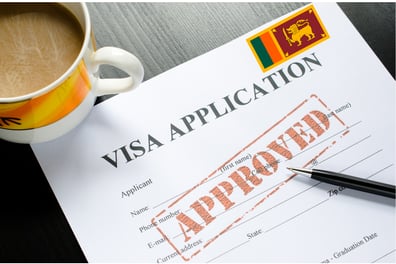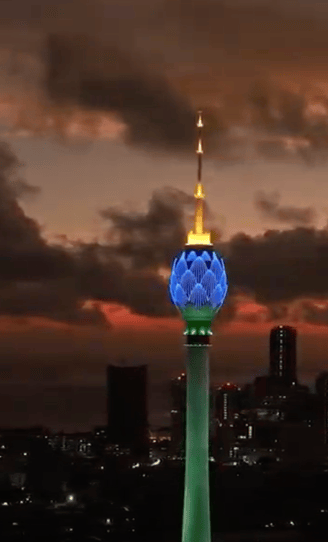TRAVEL INFO IN SRI LANKA
Visa Information
A visa exemption policy now permits eligible travelers to visit Sri Lanka for 30 days with complimentary Electronic Travel Authorization.
Visa Exemption Policy for Select Nationalities
Eligible Countries:
Nationals of China, India, Indonesia, Russia, Thailand, Malaysia, and Japan are granted a free visa regime effective immediately.Applicable Passport Types:
This exemption applies to holders of:Diplomatic
Official/Service
Public Affairs
Ordinary (regular) passports
Pre-Arrival Requirement:
Eligible travelers must still obtain an Electronic Travel Authorization (ETA) before arrival, which will be issued free of charge.Visa Terms:
30-day free visa upon arrival
Double-entry permitted within 30 days from the first arrival date
Extensions:
Travelers wishing to stay beyond 30 days may apply for an extension by paying the standard visa fee.Notes:
This policy applies only to the seven countries listed above. All other nationalities must follow standard ETA procedures.
Nationals of Cameroon, Nigeria, Ivory Coast, and Ghana must apply for their ETA through a Sri Lankan sponsor via the Department of Immigration & Emigration.
Tourist Visas
Most nationalities can obtain a tourist visa for Sri Lanka either online through the Electronic Travel Authorization (ETA) system or on arrival at Bandaranaike International Airport (CMB) in Colombo.
Electronic Travel Authorization (ETA): The ETA is the recommended and most convenient method. Applying online before your trip saves time and potential hassle upon arrival. The ETA is typically valid for 30 days, with the possibility of extensions for up to 90 days from the date of first arrival.
Visa on Arrival (VOA): While available for many nationalities, VOA can be subject to longer processing times at the airport. It's generally advisable to apply for an ETA beforehand.
Validity and Extensions: The initial tourist visa is generally valid for 30 days. Extensions can be obtained at the Department of Immigration and Emigration in Colombo. It's important to apply for extensions before your current visa expires to avoid overstaying and potential penalties.
Required Documents (ETA/VOA):
A valid passport with at least six months of validity remaining from the date of entry.
Confirmed return or onward travel tickets.
Proof of sufficient funds to cover your stay.
Confirmed accommodation details.
Long-Stay Visas:
For those wishing to stay in Sri Lanka for extended periods, several long-stay visa options exist:
Resident Visa: This category covers various purposes, including employment, investment, and retirement (My Dream Home Visa). Each subcategory has specific requirements, such as proof of employment, investment funds, or a minimum monthly income for retirees.
My Dream Home Visa: This visa is specifically designed for retirees. Applicants must demonstrate a minimum monthly pension or income and meet other financial criteria. This visa is usually granted for one year and is renewable.
Other Long-Stay Options: Other possibilities may include visas for religious purposes, students, or those accompanying family members with resident visas.
It's crucial to contact the nearest Sri Lankan embassy or consulate or consult the Department of Immigration and Emigration website for the most up-to-date and specific requirements for each long-stay visa category.
Business Visas:
Foreigners traveling to Sri Lanka for business purposes need a business visa. This visa allows activities such as attending meetings, conferences, negotiating contracts, and conducting market research.
Applying for a Business Visa: Similar to tourist visas, business visas can often be obtained through the ETA system or at a Sri Lankan embassy or consulate.
Required Documents (Business Visa):
A valid passport with at least six months of validity remaining.
A letter from the applicant's company stating the purpose of the visit, duration of stay, and financial responsibility.
An invitation letter from a Sri Lankan company or organization (if applicable).
Confirmed return or onward travel tickets.
Proof of sufficient funds.
Key Considerations:
Visa Fees: Visa fees vary depending on the type of visa and the applicant's nationality. Check the official website for current fee schedules.
Processing Times: ETA applications are usually processed quickly, often within 24-48 hours. However, processing times for other visa types, especially long-stay visas, can vary.
Overstaying: Overstaying your visa is a serious offense in Sri Lanka and can result in fines, detention, and deportation. Always ensure you have a valid visa and apply for extensions well in advance if needed.
Official Sources: Always refer to the official website of the Sri Lankan Department of Immigration and Emigration (www.immigration.gov.lk) or consult the nearest Sri Lankan embassy or consulate for the most accurate and up-to-date information.
By understanding and adhering to Sri Lanka's visa regulations, you can ensure a smooth and enjoyable experience, whether you're exploring its ancient wonders, enjoying its beautiful beaches, or conducting business. This information is for general guidance only and does not constitute legal advice. Always consult official sources for the latest regulations. This information is as per the visa regulations in 2024. For the latest updates, always check Sri Lanka ETA Official Website.


Sri Lanka’s weather is influenced by two monsoons, making it essential to choose your travel time based on the regions you wish to explore:
West and South Coasts & Hill Country: The best time to visit these areas is from December to March when the weather is dry and sunny. This period is ideal for beach holidays in places like Galle, Hikkaduwa, and Bentota, as well as exploring the central highlands, including Ella, Nuwara Eliya, and Kandy.
East Coast and Northern Regions: From May to September, the east coast and northern regions enjoy their dry season. Areas like Trincomalee, Arugam Bay, and Jaffna are perfect for beachgoers and surfing enthusiasts during this time.
December to March:
Sigiriya and the Cultural Triangle: The dry weather makes it an excellent time to explore ancient sites such as Sigiriya Rock Fortress, the Dambulla Cave Temple, and the sacred city of Anuradhapura.
Ella and Nuwara Eliya: Enjoy the cool climate, tea plantations, and scenic train rides through the lush highlands.
Yala and Udawalawe National Parks: Spot leopards, elephants, and other wildlife during safaris in these popular reserves.
April to September:
Arugam Bay: Known as one of the world’s top surfing destinations, this area attracts wave enthusiasts and beach lovers.
Trincomalee: Explore pristine beaches, whale watching, and the ancient Koneswaram Temple.
Jaffna and the Northern Peninsula: Discover the rich Tamil culture, unique cuisine, and historic temples like the Nallur Kandaswamy Kovil.
Year-Round Attractions:
Colombo: Sri Lanka’s bustling capital offers vibrant markets, colonial architecture, and a thriving food scene.
Galle Fort: This UNESCO World Heritage Site is a delightful blend of history, culture, and seaside charm.
Pinnawala Elephant Orphanage: Located near Kandy, it provides an up-close experience with rescued elephants.
Festivals to Consider
Sri Lanka’s cultural calendar is rich with festivals and events. Timing your visit to coincide with these celebrations can make your trip even more special:
Sinhala and Tamil New Year (April): Marked by traditional games, rituals, and feasting.
Esala Perahera (July/August): A grand procession in Kandy, featuring traditional dancers, drummers, and decorated elephants.
Poson Poya (June): Celebrated across the island, particularly in Anuradhapura, to commemorate the arrival of Buddhism.
Tips for Travelers
Pack Accordingly: Lightweight clothing is suitable for most areas, but bring layers if visiting the hill country.
Book Early: Peak travel seasons (December to March and July to August) see higher demand, so plan accommodations and tours in advance.
Stay Hydrated: The tropical climate can be humid, so drink plenty of water while exploring.
The best time to visit Sri Lanka depends on the regions you plan to explore, but its year-round attractions ensure a memorable experience no matter when you go. From its golden beaches and ancient ruins to its vibrant festivals and wildlife safaris, Sri Lanka is a destination that never ceases to enchant.
Best Time to Visit Sri Lanka




